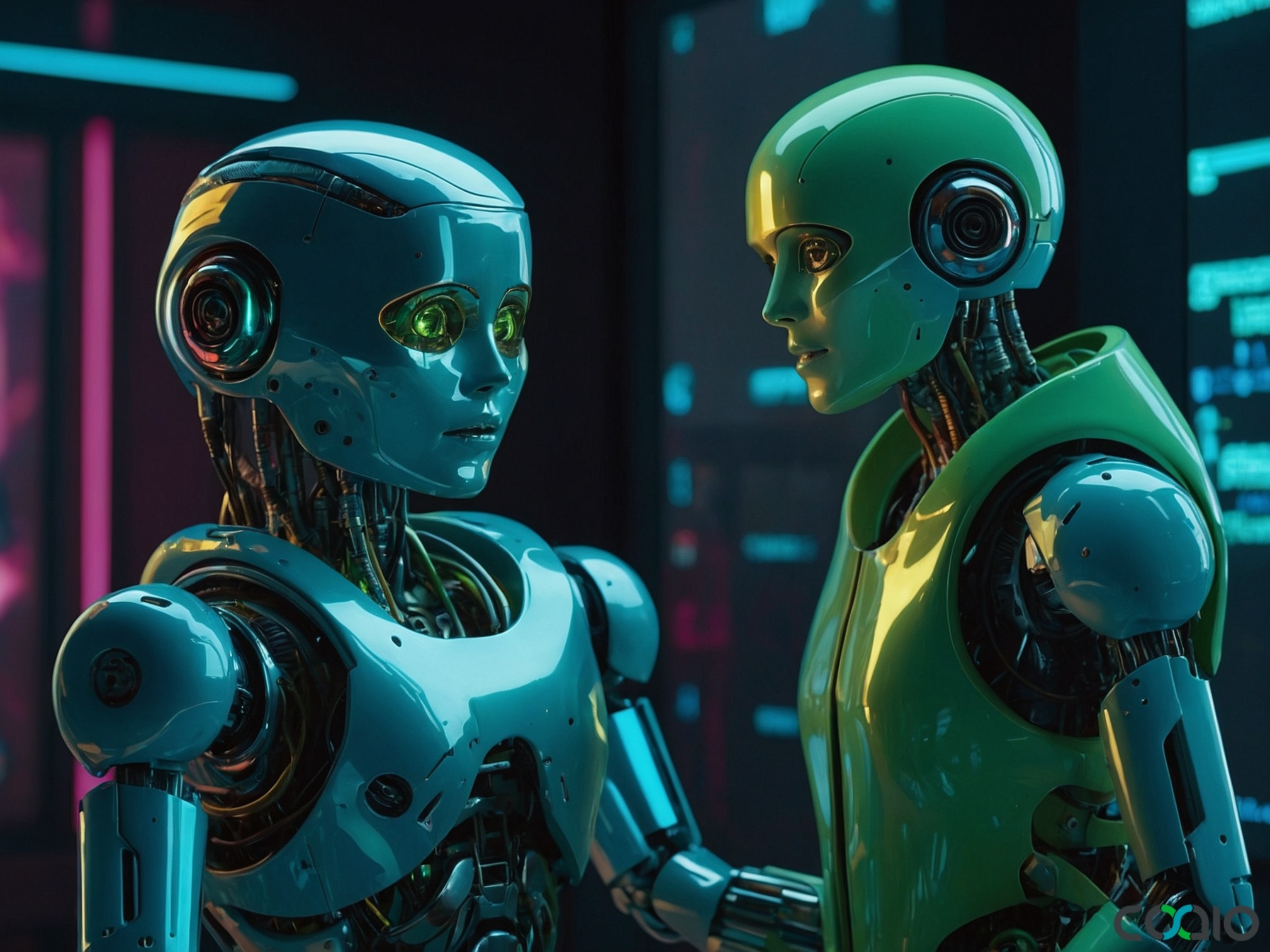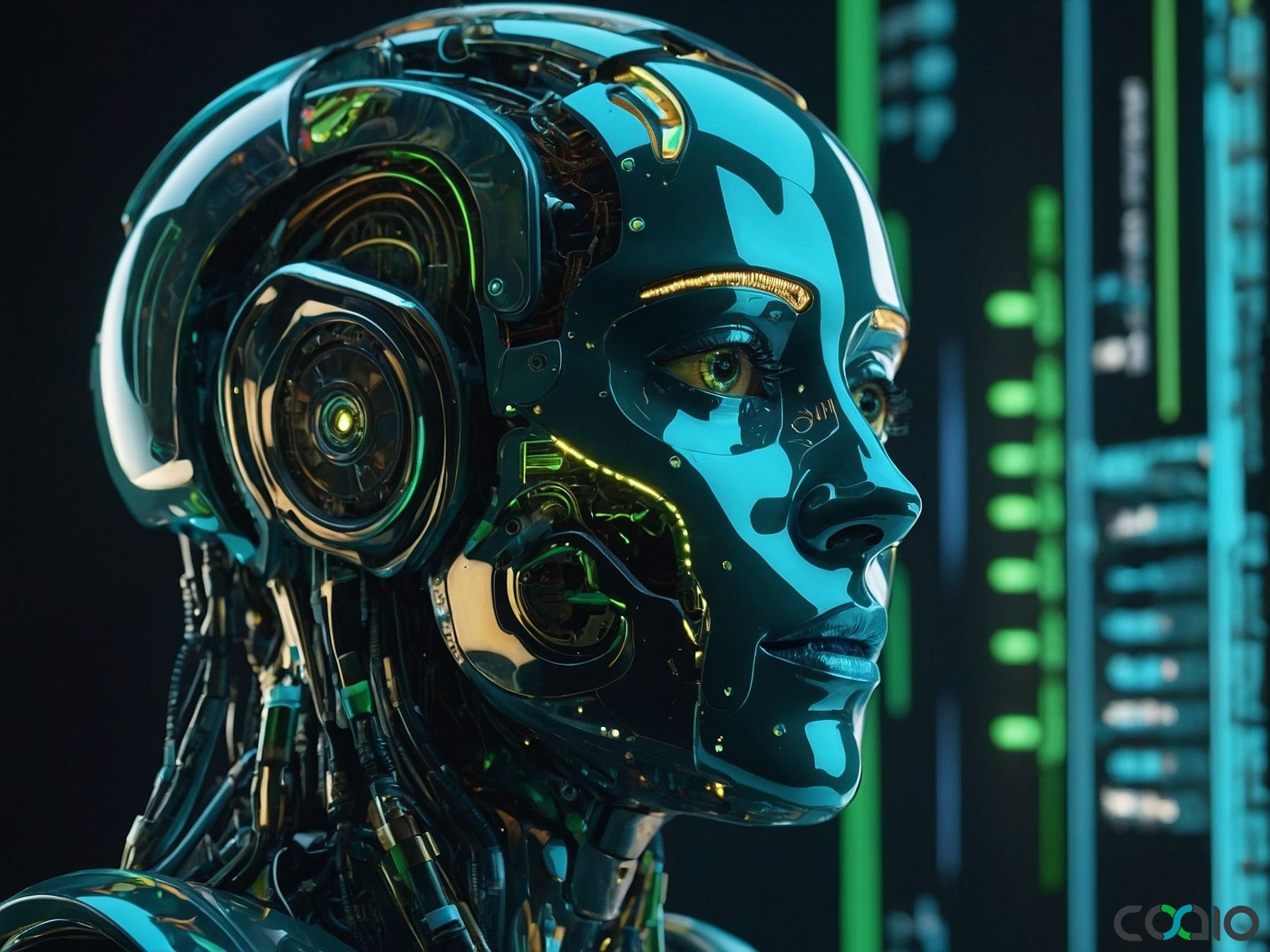
AI Innovations and Tech Shifts: How 2025's Headlines Are Reshaping Software Development
As we step into October 2025, the tech world is buzzing with developments that highlight the intersection of artificial intelligence, government policy, and consumer gadgets. From AI-generated deepfakes influencing politics to strategic investments in resource mining, these stories underscore the rapid evolution of software technologies. While not all news directly centers on coding and app building, they reveal broader trends in how software powers everyday innovations. This article dives into the latest headlines, exploring their implications for the software development landscape and what it means for businesses navigating an increasingly digital world.
The Rise of AI in Political and Cultural Spheres
One of the most talked-about stories this week involves the use of AI to create deepfake content, as seen in recent events where political figures have leveraged this technology for controversial purposes. According to a report from Ars Technica, a high-profile individual posted vulgar deepfakes of opponents, complete with exaggerated elements like a sombrero and fake mustache, sparking widespread debate on AI ethics Read more. This incident, published on September 30, 2025, highlights how AI tools—once confined to experimental labs—are now accessible for mass manipulation, raising alarms about misinformation and digital security.
The software behind these deepfakes relies on advanced machine learning algorithms that can generate hyper-realistic videos from minimal input data. Developers are pushing boundaries with generative AI models, but this comes with risks. For instance, the ease of creating such content underscores the need for robust safeguards in software design, including watermarking and detection tools. As AI becomes a staple in content creation, it amplifies concerns about privacy and authenticity, potentially leading to new regulations that could affect how software is built and deployed globally.
In the context of software development, this trend emphasizes the growing demand for ethical AI solutions. Businesses are now prioritizing tools that incorporate bias detection and user consent features, which can streamline development processes while mitigating risks. This evolution in AI software not only influences political landscapes but also drives innovation in sectors like media and entertainment, where realistic simulations are increasingly valuable.
Government Investments and Their Impact on Tech Supply Chains
Shifting gears, the U.S. government’s recent move to take a stake in a Canadian lithium mining project marks a significant intersection of policy and technology. As detailed in a TechCrunch article, the U.S. Department of Energy has acquired a 5% equity in Lithium Americas and its Nevada joint venture with General Motors, renegotiating a federal loan to secure critical resources Read more. Published on October 1, 2025, this development is part of broader efforts to bolster domestic supply chains for electric vehicles and renewable energy technologies.
While this story might seem distant from software development, it has profound implications. Lithium is essential for batteries in devices ranging from smartphones to electric cars, many of which rely on sophisticated software for optimization and user interaction. The government’s involvement could lead to increased funding for tech initiatives that integrate hardware and software, such as smart energy grids or AI-driven battery management systems. This could accelerate software innovations in resource efficiency, where algorithms predict and manage energy consumption in real-time.
For software developers, this highlights the importance of integrating supply chain data into applications. Tools that forecast material availability or simulate production impacts could become standard, helping companies adapt to geopolitical shifts. As governments invest more in tech infrastructure, developers must navigate complex regulatory environments, making expertise in compliant software design a valuable asset.
Space Tech and the Challenges of Operational Software
In the realm of space exploration, SpaceX’s Starbase facility has made headlines for outsourcing its policing needs to local authorities. A TechCrunch piece from September 30, 2025, reveals that Starbase has entered agreements with Cameron County to handle law enforcement, allowing the company to focus on its core mission of rocket launches Read more. This decision underscores the operational complexities of managing a high-tech site, where software plays a pivotal role in everything from launch simulations to security protocols.
Software development in space tech involves creating resilient systems that can withstand extreme conditions, such as real-time data processing for rocket trajectories or AI-assisted monitoring. These applications require precision and reliability, often drawing on cloud-based architectures and machine learning to analyze vast datasets. The Starbase story illustrates how outsourcing non-core functions can free up resources for innovation, a strategy that parallels trends in software development where companies delegate specialized tasks to enhance efficiency.
This approach could inspire software firms to adopt modular development practices, where components are built by specialized teams. By doing so, projects can scale more effectively, reducing time-to-market for complex applications like autonomous systems in space or earth-based analogs.
Health Tech and the Evolution of Terminology in Software
On the health front, a decision by U.S. health authorities to revert a disease name previously deemed racist has stirred controversy, as reported by Ars Technica on September 30, 2025 Read more. The article points out that the name, changed in 2022 for its inaccuracies and offensive implications, is being reinstated, highlighting ongoing debates about cultural sensitivity in scientific nomenclature.
This issue touches on software in health tech, where databases and applications must handle sensitive information with care. Medical software often includes features for terminology management, ensuring that algorithms and user interfaces avoid biases that could affect diagnostics or patient care. Developers are increasingly incorporating inclusive design principles, using AI to audit language in datasets and prevent discriminatory outcomes.
The broader lesson for software development is the need for ethical frameworks in coding practices. As health apps and telemedicine platforms grow, developers must prioritize user-centric designs that address real-world implications, fostering trust and accessibility.
The Future of Voice Assistants and Consumer Gadgets
Finally, Amazon’s Alexa is at a crossroads, with its survival tied to users upgrading to more expensive devices, according to an Ars Technica report from September 30, 2025 Read more. The article explains that Echo speakers and displays for Alexa+ now require premium components, pushing consumers toward higher-end products to access advanced features.
This shift reflects the software evolution in smart devices, where AI integration demands more powerful hardware to support complex algorithms. Voice assistants like Alexa rely on natural language processing and machine learning, which are resource-intensive and require ongoing updates. For developers, this means creating adaptable software that can leverage new hardware capabilities, such as enhanced processing for personalized interactions or integration with IoT ecosystems.
As consumers demand seamless experiences, software developers must innovate in areas like edge computing, where devices process data locally for faster responses. This trend could lead to a boom in app development for smart homes, with opportunities for creating efficient, user-friendly systems.
In wrapping up these insights, it’s inspiring to think about how visionaries are turning bold ideas into reality without getting bogged down by technical hurdles. Imagine a world where founders can channel their creativity into groundbreaking projects, supported by streamlined processes that minimize risks and maximize impact—like crafting a masterpiece with the right tools at hand, ensuring every idea takes flight efficiently and effectively.
About Coaio
Coaio is a Hong Kong-based tech firm that specializes in outsourcing software development and building expert teams in Vietnam. We offer comprehensive services including business analysis, competitor research, risk identification, design, development, and project management, delivering cost-effective, high-quality software solutions for startups and growing companies, particularly in the US and Hong Kong markets. By partnering with us, you can focus on your core vision while we handle the technical complexities, providing user-friendly designs and efficient tech management to bring your ideas to life with minimal hassle.
 English
English
 Français
Français
 Español
Español
 廣東話
廣東話
 中文
中文
 日本語
日本語
 한국어
한국어
 العربية
العربية
 Deutsch
Deutsch

